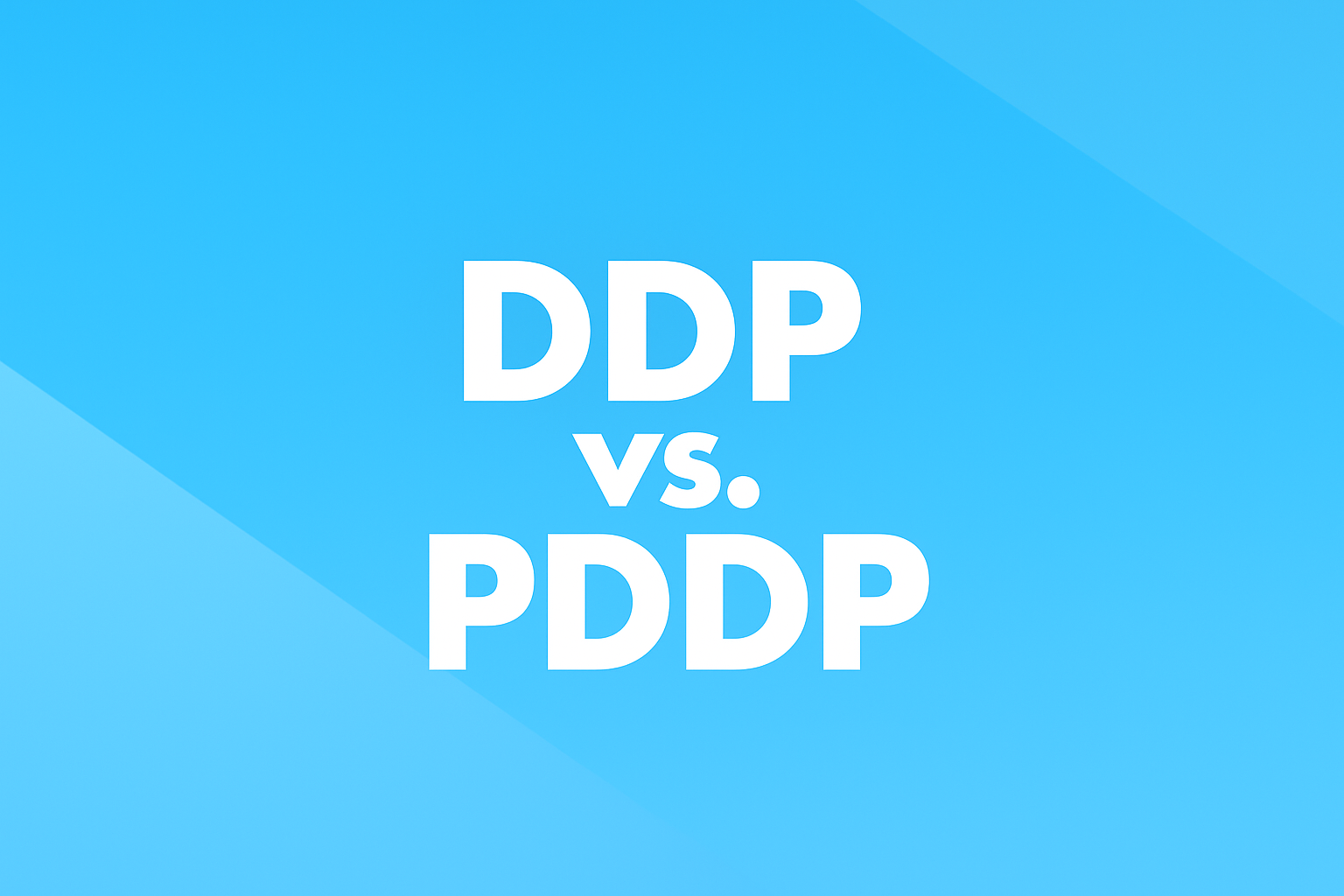- Shiptheory

Selling in the EU? Here's What You Need to Get Started After Brexit
With the UK out of the EU, the days of free trade are over. And if you're running a business that needs to move goods across EU borders – whether that's importing, exporting, or both – you'll be treated like any other business from a non-EU country.
You're going to need to get a grip on things like customs declarations, import and export licences, and all of the fees, duties, and taxes that come with it.
If that sounds scary, that's probably because it is.
Companies all over the UK are being launched into a new way of doing business with EU countries – with new rules, new restrictions, and new fields of red tape to navigate.
So, what exactly does a product-based business need to know about the new changes? And what do you need to do to get your company ready for a smooth and compliant new relationship with Europe?
Let's start with the big one:
You'll need to make customs declarations
The most significant change to the existing import and export rules is the new need for customs controls. Like any UK business that was previously dealing with places like the US or China, there are restrictions in place that make moving goods across the borders more difficult.
So if you're relying on customers or suppliers in the EU, you're going to have to start getting used to making customs declarations.
And sadly, that's not an easy task.
Dealing with customs declarations is complex and time-consuming – and you might not have the skills, the knowledge, or the capacity to handle it.
In most cases, you're better off hiring an external company specialising in dealing with customs declarations. (In fact, that's the route that the UK government recommends – you can use their list of customs agents and fast parcel operators to get started.)
But what about the businesses that won't be hiring a specialist?
If you're planning to make your customs declarations yourself, you'll need to make sure you're ready. Here's a quick checklist to set you on the right path:
1. Make sure your teams have the skills and the knowledge to deal with the complex declarations process
2. Be familiar with the Brexit shipping lingo.
3. Find the right inventory system to make processing declarations easier
4. Make sure your commodity data is correct.
5. Understand how the rules of origin work.
6. Get the specialist software you need to link to HMRC's systems
7. Apply for access to Customs Handling of Import and Export Freight (CHIEF)
8. And find out which records of your goods you need to keep.
But be wary:
If you're a smaller business that's still growing, the demand on your teams will grow along with you. So while you might currently be ready to handle customs declarations yourself, you could find that you need to hire a specialist further down the line to help you cope with the extra burden.
So choose wisely – and be prepared to stay flexible!
You might be able to delay your declarations
The new post-Brexit customs rules came into force on January 1, 2021. But in some cases, you'll have the option of deferring your declarations for up to 6 months.
That means you'll be able to move your goods across the EU border without authorisation, as long as you keep a record of those goods and give HMRC the full information later in a supplementary declaration.
So what kind of goods and activities can be delayed?
If you're exporting goods from the UK to the EU, you'll still have to follow the standard on-time guidelines for making your declarations.
But if you're importing goods from the EU to the UK, the rules get a little more complicated – and it's all down to whether you're importing 'controlled' goods.
(There is also the particular case of a business with a poor compliance record that won't be allowed to delay their declarations. But in those cases, you've usually already been told by HMRC themselves.)
If you're importing controlled goods – things like alcohol, tobacco, or petrol – you won't be able to delay your declarations, and you'll need to follow the standard rules. You can find the full of list of controlled goods here.
But if you're importing standard, non-controlled goods (everyday products that don't appear on the government's list), you'll be able to take advantage of the 6-month window where you can delay your declarations.
There'll be some extra red tape
With an understanding of how customs declarations work (and the right preparations), you've got a few more hoops to jump through before you're ready to trade.
Whether you're importing or exporting between the UK and the EU, there are two big things you need to put in place:
1. An EORI number starting with GB
If you don't already have an EORI number for your business, now's the time to get one. It's a quick and straightforward application, and in most cases, you'll get your EORI straight away (or within five days if the HMRC needs to make extra checks).
Despite the fast turnaround, you might have to wait 48 hours before you can use your new EORI number in HMRC's systems (such as CHIEF) – and since we're already under the new post-Brexit rules, the sooner you apply, the better.
Without the right EORI number, you could end up with extra costs and delays when moving your goods – such as additional storage costs for goods held up at customs.
2. The right licences and certificates
As well as your EORI number, you might also need special documentation to get your goods cleared, depending on the category of the goods you're trading in.
Some types of goods come with their own unique rules (with some overlap into the 'controlled goods' mentioned above), and you'll need to look into the specific categories of goods you're moving.
It's a long list – from animal and plant products to high-risk foods and precursor chemicals – so be sure to check through the pages on the different special categories to make sure you're not missing any essential certificates or licences that might cause problems with your imports.
You'll be looking at extra costs
Besides the costs of new software (and any customs specialists you hire), you may also have to pay some additional fees when moving your goods between the UK and the EU.
This is especially true for any business that imports, where you'll need to pay:
· Customs duty when your goods arrive in the UK – but yo
u may be able to use a duty deferment account to delay these payments to HMRC
· Import VAT – either paid with your other duties if you're not registered for VAT or paid with postponed VAT accounting if you are registered
· And any excise duty on relevant goods (like alcohol or tobacco) – unless those goods are in excise duty suspension.
Ready to get ready?
With so many new regulations and rules already in place, setting your business up for EU trade in a post-Brexit world is no joke. And if you're a smaller business without the skills and capacity to prepare yourself, it can seem overwhelming.
So to help you get started, you can go through the government's Transition Check tool – a step-by-step guide that asks you the right questions to help you understand your position and what you need to do next.
Additionally, Shiptheory offers a handy product data checking tool that automatically identifies and highlights any issues or omissions in your product data and helps you reduce friction when shipping internationally.
And if you're looking for more guidance on how to get your inventory systems ready for the EU, talk to one of our BlueHub experts for a free consultation to help get your business prepared.
Author: Ed Palmer

Ed Palmer is a freelance copywriter at Keep This Copy. He's spent more than five years helping businesses look good and sell more stuff – writing for and about almost every business and industry there is.






